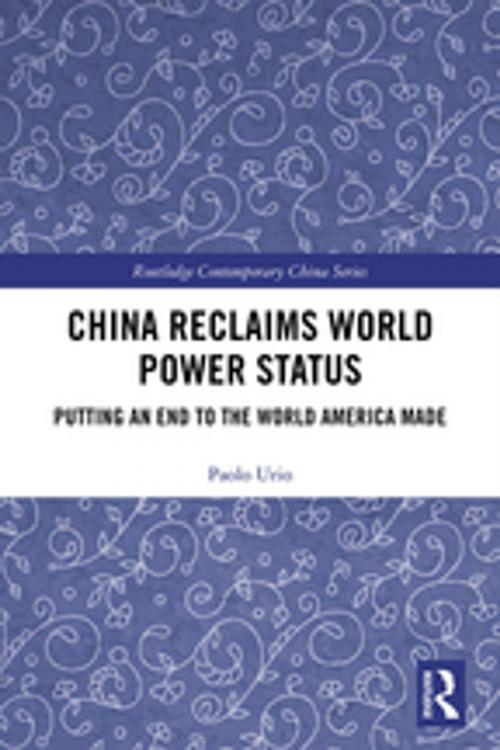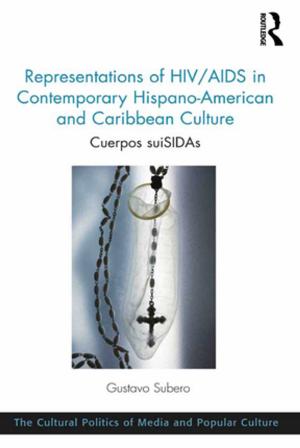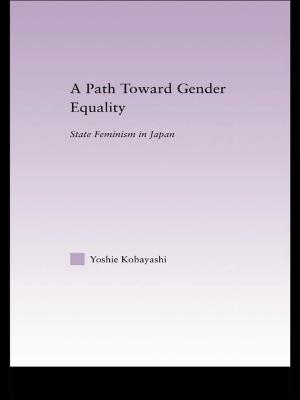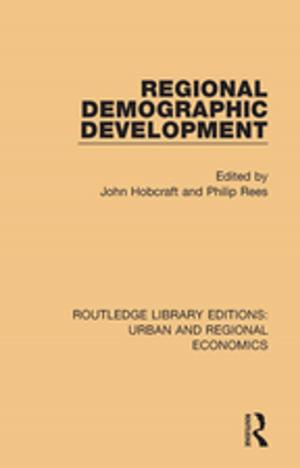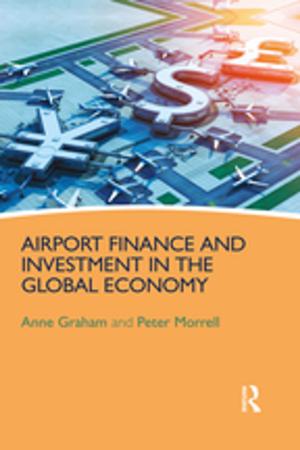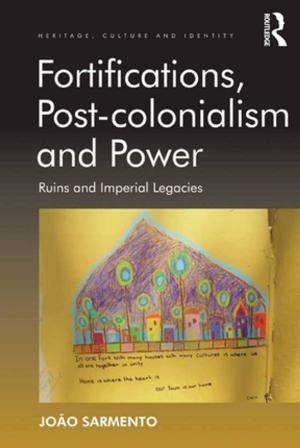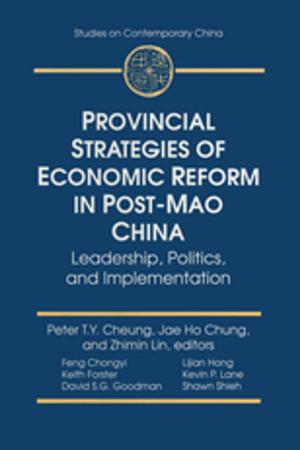China Reclaims World Power Status
Putting an end to the world America made
Nonfiction, Social & Cultural Studies, Political Science, International, International Relations| Author: | Paolo Urio | ISBN: | 9781351704731 |
| Publisher: | Taylor and Francis | Publication: | April 9, 2018 |
| Imprint: | Routledge | Language: | English |
| Author: | Paolo Urio |
| ISBN: | 9781351704731 |
| Publisher: | Taylor and Francis |
| Publication: | April 9, 2018 |
| Imprint: | Routledge |
| Language: | English |
Using both Chinese and Western theoretical approaches, this book analyses the strategies implemented by China for reclaiming power in the international domain. Examining domestic measures taken by China to assure its economic and social development, it also considers the strengths and weaknesses of its major international opponent, the US, and analyses their competing approaches to developing power resources and leadership dominance. It studies the foreign policies of both China and the US, first by going back to the historical origins of their ideological foundations and secondly by analysing their power building from the nineteenth century to the Trump and Xi Jinping presidencies. Finally, this book focuses on the One Belt One Road Initiative as China’s response to putting an end to the ‘world America made’ and debates the question of whether China will emerge as a new capitalist country embedded in the liberal capitalist world system, or as an authoritarian state with a socialist market economy, able to change the rules of the international order.
Providing a comparison of the two major world powers and a comprehensive overview of their relationship, this book will be of great interest to students and scholars of Chinese politics and international relations, as well as Chinese Studies more generally.
Using both Chinese and Western theoretical approaches, this book analyses the strategies implemented by China for reclaiming power in the international domain. Examining domestic measures taken by China to assure its economic and social development, it also considers the strengths and weaknesses of its major international opponent, the US, and analyses their competing approaches to developing power resources and leadership dominance. It studies the foreign policies of both China and the US, first by going back to the historical origins of their ideological foundations and secondly by analysing their power building from the nineteenth century to the Trump and Xi Jinping presidencies. Finally, this book focuses on the One Belt One Road Initiative as China’s response to putting an end to the ‘world America made’ and debates the question of whether China will emerge as a new capitalist country embedded in the liberal capitalist world system, or as an authoritarian state with a socialist market economy, able to change the rules of the international order.
Providing a comparison of the two major world powers and a comprehensive overview of their relationship, this book will be of great interest to students and scholars of Chinese politics and international relations, as well as Chinese Studies more generally.
